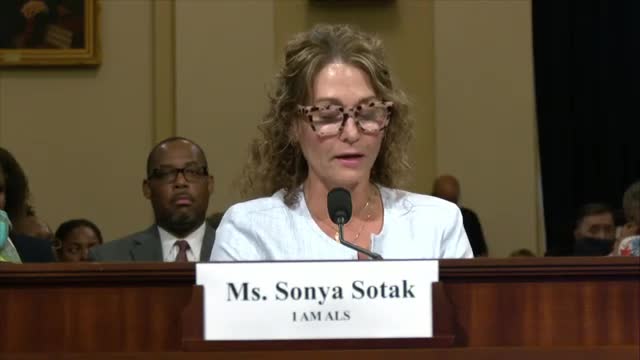Veterans with ALS face urgent need for better care options
June 14, 2024 | Veterans Affairs: House Committee, Standing Committees - House & Senate, Congressional Hearings Compilation

This article was created by AI summarizing key points discussed. AI makes mistakes, so for full details and context, please refer to the video of the full meeting. Please report any errors so we can fix them. Report an error »

In a recent government meeting, discussions centered on the urgent needs of veterans suffering from Amyotrophic Lateral Sclerosis (ALS), a fatal neurodegenerative disease. The meeting highlighted the alarming statistics that veterans are twice as likely to develop ALS compared to civilians, with post-9/11 Air Force veterans facing a tenfold increase in incidence rates. Currently, it is estimated that between 5,000 to 6,000 of the 30,000 individuals living with ALS in the United States are veterans.
The committee addressed the challenges veterans face in navigating the complex VA benefits system after an ALS diagnosis. Many veterans and their families struggle to advocate for themselves while managing the disease, often leading to delays in accessing necessary care. To assist, the organization I am ALS has developed a comprehensive toolkit to help veterans understand and access their benefits.
A significant point of discussion was the need for legislative changes to improve care for veterans with ALS. The Elizabeth Dole Home Care Act was highlighted as a crucial piece of legislation that could enhance the quality of life for these veterans by increasing the expenditure cap for non-institutional care from 65% to 100% of the cost of the nearest VA community living center. This change would allow veterans to receive care in the comfort of their homes, alleviating the burden on families and caregivers.
The meeting also shared a poignant story about a Navy veteran named Garrett, who faced insurmountable bureaucratic challenges while trying to manage his ALS care at home. Ultimately, Garrett's struggle led him to make the heartbreaking decision to end his life rather than face institutionalization. His story underscores the urgent need for legislative action to support veterans with ALS and their caregivers.
The committee emphasized the importance of bipartisan cooperation to ensure that veterans with ALS receive the recognition and support they deserve, particularly in accessing home health care and resources for caregivers. The discussions concluded with a call to action for lawmakers to prioritize the needs of veterans battling ALS, ensuring they can live with dignity and support in their final years.
The committee addressed the challenges veterans face in navigating the complex VA benefits system after an ALS diagnosis. Many veterans and their families struggle to advocate for themselves while managing the disease, often leading to delays in accessing necessary care. To assist, the organization I am ALS has developed a comprehensive toolkit to help veterans understand and access their benefits.
A significant point of discussion was the need for legislative changes to improve care for veterans with ALS. The Elizabeth Dole Home Care Act was highlighted as a crucial piece of legislation that could enhance the quality of life for these veterans by increasing the expenditure cap for non-institutional care from 65% to 100% of the cost of the nearest VA community living center. This change would allow veterans to receive care in the comfort of their homes, alleviating the burden on families and caregivers.
The meeting also shared a poignant story about a Navy veteran named Garrett, who faced insurmountable bureaucratic challenges while trying to manage his ALS care at home. Ultimately, Garrett's struggle led him to make the heartbreaking decision to end his life rather than face institutionalization. His story underscores the urgent need for legislative action to support veterans with ALS and their caregivers.
The committee emphasized the importance of bipartisan cooperation to ensure that veterans with ALS receive the recognition and support they deserve, particularly in accessing home health care and resources for caregivers. The discussions concluded with a call to action for lawmakers to prioritize the needs of veterans battling ALS, ensuring they can live with dignity and support in their final years.
View full meeting
This article is based on a recent meeting—watch the full video and explore the complete transcript for deeper insights into the discussion.
View full meeting